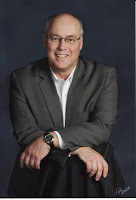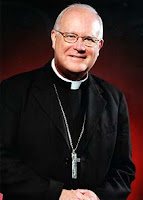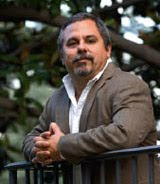By Peter Menkin
Senior Minister, Reverend Matt Broadbent of Los Altos, California Foothill Congregational Church, United Church of Christ, spoke with this writer by phone and webcam via Skype in February, 2010 about Same Sex Marriage & Same Sex Blessings. This is the first of a series of interviews with different clergy denomination members on the subject. Two other upcoming interviews are with The Rt. Reverend Marc Andrus of The Episcopal Church, USA (San Francisco Bay Area known as Diocese of California), and Rabbi Stephen Pearce of Reform Temple El Emanuel, San Francisco. This writer hopes to find two other people willing to talk from their denominations, making this a five part series.
1. This two part question has to do with the Church’s mission: (1) Is it mission for United Church of Christ and your congregation to proclaim and normalize the practice of Gay Marriage & Same Sex Blessings? (2) Is this a peace and justice issue, and would you comment on the remark made by the Publisher of Pilgrim Press, The Reverend Timothy G. Staveteig. I asked a similar question on whether the matter is mission for UCC and the Church Publishers remarked in an email response:
a. “From our first printing of Rev. Dr. Martin Luther King, Jr.’s Measure of a Man in 1957, The Pilgrim Press has developed books and resources that have often addressed difficult and complex social justice issues. Through our historic publishing operation (since 1640), which is a gift of the United Church of Christ, The Pilgrim Press has sought out voices marginalized by a dominant culture and seeks to build fully inclusive communities.”
I’m responding as a Pastor, not so much as a scholar.
No. Not our Mission. Mission is to be a Christian Church and embody God for all people.
It is a peace and justice issue. It is more a fairness issue, and we look at those who are marginalized. My Church is an upper middle class community, in the midst of Silicon Valley. For most of the people it is not a huge issue for them; there is a small group that is opposed.
We like to date as the Pilgrim Church, 1620. They were the separatist’s movement of the Puritans who sought to purify the church. These were mainly shop owners and tradesmen, part of the rising Middle Class in England who wanted to remove themselves from The Church of England. Rev. John Robinson sent the Pilgrims off to the New World with the admonition, “The Lord hath yet more truth and light to break forth from God’s holy word.” The Presbyterian churches that seek to be open to the LGBT community call themselves the “More Light” churches. They pick up from this Robinson’s quote. The UCC has sought to be faithful to this search for God’s continuing “light and truth,” and in so doing we have experienced a lot of “first” in American religious life. We were one of the first Church groups to opposed slavery. We were the first to ordain the first to ordain an African-American pastor, and the first to ordain a woman in the 19th Century. In the 20th century we were the first to ordain an openly Gay minister, Rev. William Johnson in San Carlos, UCC...
We have a long tradition of pushing the edges on the peace and social justice issues. I like to say, we are convicted by our principles, continually asking the question: How does God continually open the Church to all people? It seems natural for us to say: “Shouldn’t we be celebrating Same Sex Marriages?”
2. Where are you on the United Church of Christ religious spectrum? Progressive, Liberal, Conservative? What does this mean to you?
Senior Minister, Reverend Matt Broadbent: I guess I am somewhere in that range of the Progressive Liberal, but my style is traditional. I tease my congregation that I am more conservative than they are. They are trying to be up to date, whereas I’m
 still singing plainchant. I like the tradition.
still singing plainchant. I like the tradition.3. Where is the San Francisco Bay Area United Church of Christ going with Same Sex Blessings and Gay marriage? Has a national statement been formulated on the subject?
Senior Minister, Reverend Matt Broadbent: The simple answer is Yes. We have formed a national statement. This is not a hierarchical Church, so the national organization has made a statement. It is a recommendation to local churches. It gets down to the local church. Each local church must decide how they handle the recommendation. On July 4, 2005 at the General Synod 25, the national gathering, they voted for an Equal Marriage Rights for All recommendation. Recommendation is my word, and that’s what it means, to consider support of Equal Marriage Rights for all.
4. If there is a key Bible vision that supports Gay Marriage & Same Sex Blessing; please give a Biblical example and explain something of your vision on interpretation? Who else shares this sensibility and understanding we might know or recognize?
Senior Minister, Reverend Matt Broadbent: My point is, if you ask the question of what is Jesus response to Gay Marriage, or same gender loving relationships. Nothing. He doesn’t speak of it at all. What has happened in this discussion is people have picked up some statements by Paul, and a few from the Old Testament. All have something to do with oppression, not loving relationships. The scripture passages that guide me are: 1st John: 4, where he says simply, God is Love. And those who Love, Love God. 1st Corinthians 13 is the Love passage of Paul, holding up this Love relationship between people is the highest value. For me the core of the Gospel text is the Great Commandment in Matthew, Mark & Luke. And it is the Jewish restatement of tradition that you are to love God and Love neighbor. That is the core of it, that is what Jesus says is the core of faith. Marriage, as such, is a social arrangement, or does these help to love God and Love neighbor. And I tell people, I am in the business of encouraging long term relationships. This is a healthy way in the world. If it is same gender loving relationships, then that is what I need to do. I would even say that in those passages that our more conservative pick out, all is about where a person is taking advantage of someone else. When he talks about men sleeping with men, or women with women, he is talking about Temple Prostitution. He is talking about relationships that are unequal, and essentially unjust. What Jesus calls for always is Justice and Equality in the Kingdom of God.
5. What book do you recommend reader’s read that leads to an understanding of your stance and your statements supporting Gay Marriage & Same Sex Blessing?
Also when people ask me, I direct them to the website, www.UCC.org .
6. Have you performed a Same Sex Blessing, and if so, will you tell us some of the words you used? Where did you do this?
Senior Minister, Reverend Matt Broadbent: I have, both in Santa Cruz where I was for 17 years, and here in Los Altos just a couple of months ago. I wish I could have said I’ve done more. In Santa Cruz--it was with two women fairly early in my ministry. I led that Church into an Open and Affirming relationship. We did the wedding in their home, not in the sanctuary. The reason they did it was one was an artist and the other was teaching at the University. I asked them when asked about doing the marriage, “What date were you thinking of?”
The other wedding was done in Los Altos at Foothills Congregational Church UCC. The couple was legally married in Vermont. What we did at the Church is a blessing of their Civil Vows,
We have a same gender, non-biased wedding ceremony. We worked with the couple, and the ceremony was pretty traditional. They said, “We want to be married, not be in a show.” What they wanted to receive was a sense of God’s blessing on their choice, their relationship. We’re speaking of the one in Los Altos. They went with the blessing, because they’d already been married.
7. Who are other significantly well-known and respected Church clergy leaders of other denominations, mainly in the San Francisco Bay Area, who join you in your viewpoint? Do you know their denomination? Is there one with whom you’ve spoken who has influenced you most?
Senior Minister, Reverend Matt Broadbent: In our own denomination, it is all of the leaders of the United Church of Christ in the Bay Area. I know of a couple of ministers who would have problems with it. I really don’t know of anyone else in our denomination that has a problem with Gay Marriage. There is always The Reverend Doctor Mary Susan Gast. She is the conference minister in the Northern California – Nevada region.
8. If there are words you’d recommend for Performing a Same Sex Blessing, will you tell us them. Where in the Bible is this supported, and if you see these as part of the Social Gospel, please tell us something of your sense of the Social Gospel that leads you to support this? Do you recommend certain Bible readings to Gay couples (man and man, woman and woman), and in their either civil union relationship, or in Gay Marriage, are there other readings or meditations on Biblical text you recommend?
Senior Minister, Reverend Matt Broadbent: In the two I have done, we had all of the Bible open for interpretation. The one in Santa Cruz, Clearly we are not going to use the one where, A woman will leave her family and cling to her husband. But the other couple in Los Altossaid [regarding the Paul statement], We can make that work. One of us will take on the role of being the husband. The Bible for them was not a problem. They looked at the issue of love and commitment and caring for one another. We looked at the argument in the Apocrypha of Tobit’s wife taking on a goat. In most of the discussion I’ve had with people, most of the material has been open to mainstream, regular passages. There has not been a big to-do over special readings for Gay people. The whole thing is moving into the main stream. Hey there, we have similar needs, similar desires.
9. At what point in your life, did you begin to support the subject of this interview? Has it been since being a UCC ordained minister? Is there anyone you respect in specific who does not agree with your stance?
Senior Minister, Reverend Matt Broadbent: My father was a minister, and he met my mother in seminary. He was United Church of Christ. We had always been a part of a liberal and progressive way of worshiping. He had a problem with Gay marriage as an issue, but intellectually overcame that. My father grew up in an era where he did not show a lot of affection. It was something that I missed. It was a resentment on my part that he didn’t tell me he loved me. I think I was 50 years old that he first told me he loved me. He was afraid if he showed too much affection for me and his brother he was afraid we would become Gay. I’ve not known a time when I really had a problem with the issue of Gay Marriage. It is a matter of being in committed, covenanted relationships. My problem is the same as with heterosexual relationships. When it becomes a sexual relationship solely, it becomes about satisfying our own hunger, not about a caring relationship.
10. Though we have not talked about Proposition 8 in California, how do you characterize the results of the vote which said Yes to deny Gay Marriage in the State? Is there a kind of guilt to this position in the moral or spiritual sense?
I think that people who have been so opposed with Prop 8, seem to suggest that somehow their marriage is going to be devalued by same sex marriages; my first reaction is How insecure are you. The point is when a relationship is based on mutuality and trust and caring for one another, this can only enhance our society.
11. At what point in the faith and concern of the United Church of Christ (nationally and in your congregation) did the tide turn towards Gay Marriage & Same Sex Blessing? Will you tell us something of your personal experience in faith and concern regarding the faith issue? Was it a teaching of Jesus Christ, a meditation on the Bible?
Senior Minister, Reverend Matt Broadbent: It’s been a turbulent time, when the United Church of Christ decided to include the Rights of Marriage recommendation; they were other conferences that withdrew from the United Church of Christ. Puerto Rico withdrew from UCC, Pennsylvania (Western Pennsylvania) withdrew from the UCC (several associations did this). I think there were associations in Indiana who did the same thing. In our area.
Senior Minister, Reverend Matt Broadbent: My personal experience: When I cam to the Church in Los Altos 10 years ago, I was asked will this be one of your major issues? I said, No. But they needed to understand that I was an open and affirming minister, and this is the way I would administer the Church. When lay people from within the Church itself said to me and everyone else, We need to move ahead and become an open and affirming Church, I would be there to support them. There were people on that committee who thought, that’s okay. We can probably counter him, block this if we need to. Over the ten years we have practiced this, and in the past three years we have become an open and affirming Church. We lost a few members, but we gained a number of young families. All of them said they wanted to become part of a Church that was this; they wanted their children to be brought up in this kind of Church. I was asked also, will you do a same sex marriage. I said, Yes, I would. If I were asked. Before I would have taken that request to the Deacon (they are one of the ruling body of the Church, they are the lay leaders of Foothills Congregational Church UCC). I’m pretty sure they would have said Yes, but after we became an open and affirming Church, we were able to do it. I turned to a founding member of the fifty year old Church, did you ever imagine we would have a same sex wedding at Foothills. Never in my wildest dreams. Wasn’t it just perfect, she said.
12. Have you given a sermon on the subject, and may we see text of a key excerpt?
Senior Minister, Reverend Matt Broadbent: I tend not to beat these things into the ground. I’m more of a Biblical teacher, but I have used the issue as a reflection or illustration in a sermon. Several times I’ve used it: This is why Gay or Lesbian or Transgender people are so upset over this issue. Rather than preach on social hot topics, I try to interweave our concerns with the Biblical texts. I’m trying to create a way in which we can all talk to one another.
13. What is your sense of community of believers, in part in its congregational sense and as a dimension of your leadership of a congregation? How is your sense of Community extended beyond your denomination to the greater world, and again will you give us some Biblical instruction, maybe from the Old Testament as it relates to the New, on this topic of Gay Marriage & Same Sex Blessing?
14. I suppose we’ve covered the subject, but to rephrase the previous question as I think it important to our topic, and you do not need to speak directly to the topic in your reply to the previous question or this one, what does Church mean to you as senior minister? What is your vision, as one might say?
Senior Minister, Reverend Matt Broadbent: What I believe the Church to be, is the body of Christ. We are called to incarnate the spirit of Christ in the world, and that we carry that Christ life within us into the world. All of us are one body; here we are all included in this. My vision of the Church is that includes my Evangelical brothers, Catholics and Orthodox, all of the Church. What we’re called to is not to identify ourselves as an exclusive club in the world, but to manifest the church as the Kingdom of God to the world. It is a very inclusive vision. How can I be inclusive? How can God be in the world, not just in the Church, but in the creation? One of the key words is transforming the word kingdom to Kingdom. I think that is what Jesus was talking about; we’ve go it confused, as if Jesus is all powerful and going to judge us. He talks about how all of us are gathered into this kin to one another, that Jesus is opening an invitation to be kin to one another. It is so broad it is beyond religious identity. If God is love, then God is love absolutely.
15. In my email correspondence with The Reverend Michael D. Schuenemeyer we discussed a series of issues and contemporary issue topics regarding Gay Marriage & Same Sex Blessings. I asked him if San Francisco and California is in the forefront of the Church’s missionary activity in this area, and if it as secular society is in the forefront. Do you agree with his answer, and will you comment on his remarks? He says and I asked:
a. What area is leading in their receptivity of the matter; is it San Francisco?
b. For the UCC, this effort is not unique to California and so it is difficult to say where the leading edge of this movement is in our denomination. There are churches, pastors and layperson engage on both the civil and religious in many places around the country, especially in those states that have been successful achieving marriage equality, including Massachusetts, Connecticut, Vermont, New Hampshire and Iowa. The congregations that tend to be most involved are those which have done an educational process called the Open and Affirming process. This process usually leads a local church to publicly declare their welcome and inclusion of lesbian, gay, bisexual and transgender person in the full life and ministry of the church.
c. There has also been strong engagement where marriage equality has not yet been realized either on the ballot or in the courts, or where states have adopted anti-gay marriage statutes. UCC leaders, clergy and lay, have ensured that their progressive religion is heard and have supported organizing efforts that have been successful in building a movement that despite recent setbacks will ultimately be successful.
d. The energy tends to be strongest in the areas where there is a high level of legislative, ballot or legal activity. This fall, Maine is going to be very active and there will be many UCC churches and leaders involved in the effort to defeat their ballot initiative to repeal marriage equality there. There is a lot of activity in Iowa in the effort to protect the court decision. California will also continue to be a place of activity with efforts to repeal Prop 8 as early as 2010 or 2012
This is a personal reaction by Senior Minister, Reverend Matt Broadbent : He [Reverend Michael] is mentioning states you wouldn’t think would open up to same sex marriage. I grew up in New Hampshire. I came to California in the winter of 1979; I experienced California as everybody generally liberal in their social behavior. But the religious atmosphere was fairly conservative in its nature, especially in the valley and other areas. People were socially conservative in New Hampshire and were generally religiously liberal. As a general kind of environment. So I can understand why those New England States agreed to Same Sex Marriages. I know their expectation was they were going to act in an appropriate way. In California people don’t always act in an appropriate way, but religiously they are very closed over. I find this an odd paradox. It doesn’t surprise that in California they defeated this idea of same sex marriage. Even though California is seen as a left coast kind of life. It is one of the paradoxes of life. For me personally, I struggle, and have struggled with the idea of separation of Church and State. Especially in Anglo American churches. We are not as defined as Black Churches who really get involved and take a stance. They are socially liberal, but really very much conservative. What I try to do in the UCC is try to preach values, stay with understanding the core values of the Gospel, then encourage actions by people in the community. I personally try to lead. For example, when we became an open and affirming Church, everyone knew where I stood.
16. Further in my email conversation with The Reverend Michael, I asked this question that follows with his response. Will you comment on the blessing service he notes and tell us if you use it or know of others in the area that uses it?
a. Have you a standard service for either or both, and may I see the text?
b. Yes. It is a gender neutral version of the Order of Marriage in our book of worship.
c. Link: Order for Marriage - an inclusive version [PDF]
i. The Reverend Michael D. Schuenemeyer is Executive for Health and Wholeness Advocacy Wider Church Ministries
Senior Minister, Reverend Matt Broadbent: This format of his is kind of the template we operate from. And we are free to change and adjust it as we want. We are really bottoms up Church...to the independent of thinking, and the decisions are made by the congregations themselves.
17. Thank you for this interview via email questions and answers. Is there anything else you’d like to add or say?
Senior Minister, Reverend Matt Broadbent: Not at this point. I think I’m about talked out.
Addendum:
The Publisher Pilgrim Press (United Church of Christ) recommends these book titles on Gay Marriage:
Same Sex Marriage?:
Extending the right to marry to same-sex couples is front-page news, and hotly contested in both church and society. This critical book is written by a gay man and progressive Christian ethicist who places justice making at the heart of contemporary spirituality. In dialogue with both legal scholars and theologians, the author examines the strengths and weaknesses of how marriage traditionalists, advocates of same-sex marriage, and LBGT (lesbian/bisexual/gay/transgender) critics of marriage analyze the issues and frame their arguments. This book offers constructive proposals for revitalizing Christian sexual ethics and moving the debate forward, regardless of whether the right to marry is won or lost.
Review Link: http://findarticles.com/p/articles/mi_m1058/is_13_121/ai_n6100518/
Exile or Embrace:
This book is a helpful guide for pastors and congregations asking such questions as:
How will we as a congregation be in covenant with our gay members?
How will we respond to homosexuals outside the church?
Part One tells the story of Siler's congregation's struggle and growth as it pondered whether to become openly welcoming of gay and lesbian Christians.
Part Two assists congregational leaders in discerning how and when to engage in this congregational conversation.
Part Three is a study guide outlining seven sessions to shape the congregational conversation and discernment.
Review Link: http://www.ucc.org/ucnews/decjan09/from-exile-to-embrace.html
God Comes Out:
"Readers will welcome this book, not only for its wisdom and compassion, but also for its practical suggestions about how to initiate liberating conversation about sexual differences. Pastors especially will gain deep insight into how preaching a fully inclusive gospel can draw our communities into a more faithful realization of the reign of God. Hinnant demonstrates again and again how preaching is above all a theological act, a giving witness to the justice and compassion of God."
~Thomas H. Troeger, Yale Divinity School and Institute of Sacred Music.
Image: (1) Portrait The Reverend Matt Broadbent.




.jpg)






